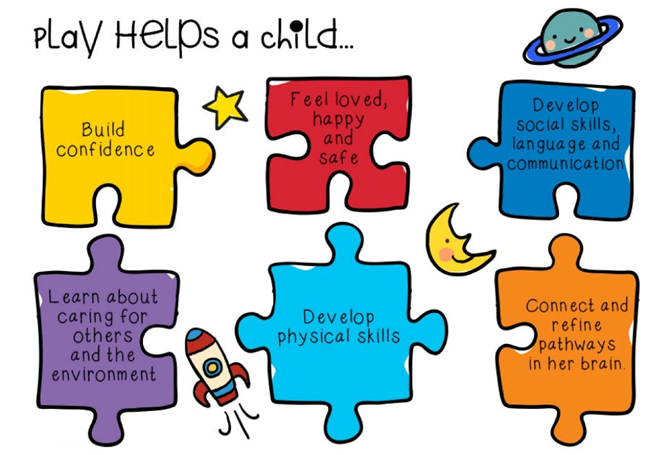Orange Public Schools
Gerald Fitzhugh, II, Ed.D., Superintendent of Schools
- Orange Public Schools
- The Importance of Play
Office of Early Childhood Education
Page Navigation
- Overview
- The Importance of Play
- Preschool Providers
- Preschool Curriculum
- Preschool Assessment
- Preschool Instructional Coaches and Preschool Intervention Referral Specialists
- Creative Curriculum Units of Study
- NAEYC Position Statements
- Preschool Registration
- District Calendar
- District Goals and Objectives
- District Strategic Plan 2021-2026
- Preschool Providers and Head Start 2021-2022 Water Testing Results
-

The Importance of Play
Play benefits every aspect of child development. According to the National Association for the Education of Young Children (NAEYC), the act of play comes so naturally it seems to be a little more than a simple, joyful experience. Many child development experts believe that play is how children learn about and experience their world. One of the most important things that young children learn through play is how to form and maintain relationships with others.
Play is a vital component of early childhood development, serving as a powerful tool for learning and developing across multiple domains. It supports cognitive development by enhancing problem-solving abilities, memory, and creativity, while also laying the groundwork for literacy and numeracy skills. Socially and emotionally, play helps children learn to cooperate, share, resolve conflicts, and express their feelings in healthy ways, fostering empathy and emotional intelligence. Physically, it promotes motor skill development, coordination, and overall health through active movement. Language and communication skills are also enriched as children engage in conversations, storytelling, and imaginative story-telling. Additionally, play nutures executive function skills such as attention control, planning, and self-regulation, which are essential for lifelong learning. It stimulates creativity and imagination, allowing children to explore different roles and perspectives. Importantly, play also acts as a natural stress reliever, helping children process emotions and build resilience. In essence, play is not just a leisure activity, it is a fundamental part of how children learn, grow, and thrive.
Our preschool classrooms are grounded in research that highlights the transformative power of play, children's innate superpower for exploring, understanding, and making sense of the world around them.
"Empowering Young Minds Through the Joy of Play."

